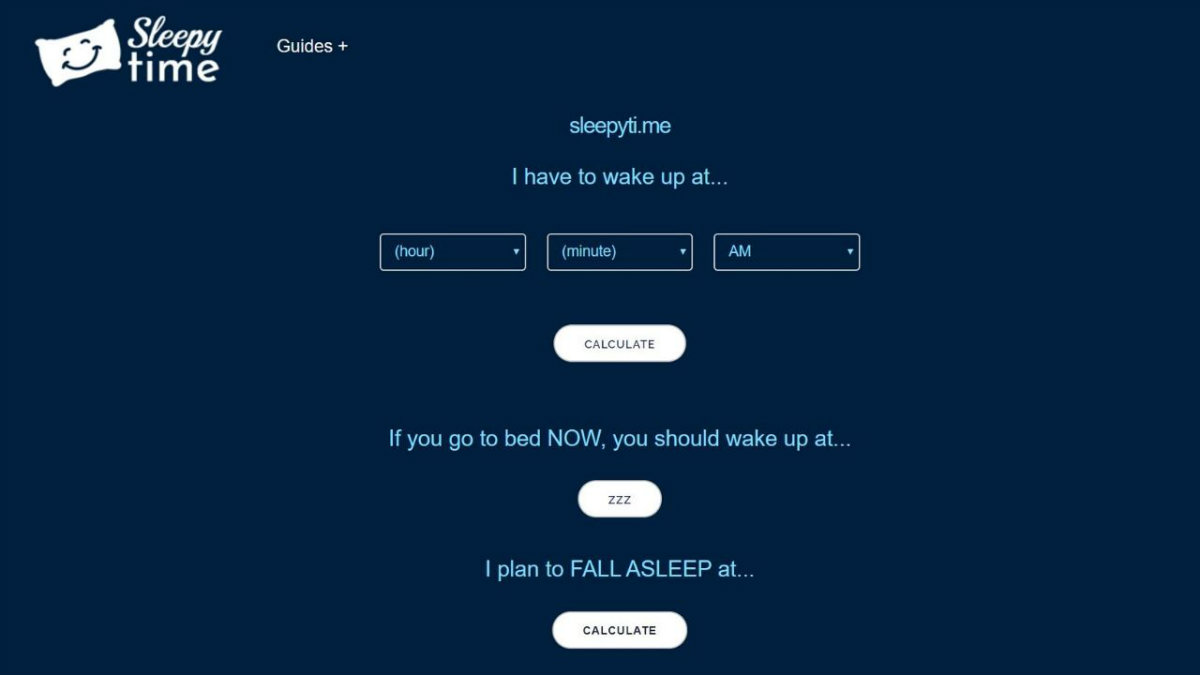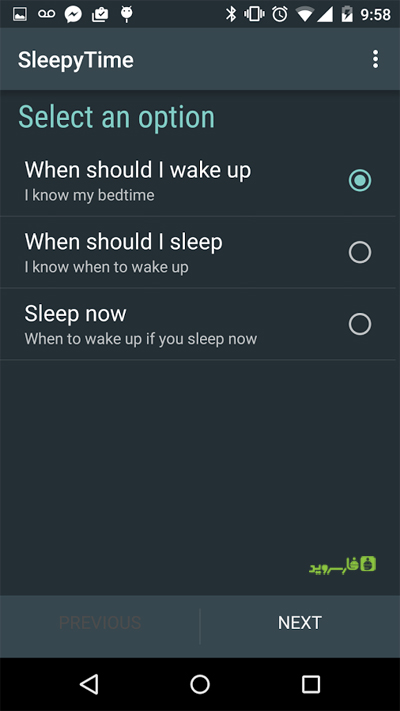

People usually take a few minutes before they actually fall asleep, the average duration is 14 minutes. The app will sound an alarm when it's time to wake up. You can pick from one cycle and up to 7 cycles, but that means about 10 hours of sleep. It gives you suggestions based on how many sleep cycles you want to have. You need to provide the approximate hour when you want to go to bed and when the app should wake you up. The third mode focuses on providing tools for when you want to set an alarm and go to sleep. Users can decide if they want the app to calculate when they should wake up or go to bed. You'll need to pick from three modes when you first launch the app. Calculate the amount of sleep that you need Still, users have the option to change the duration of a sleep cycle, but it's not recommended since the app might not be effective afterwards. Waking up during a sleep cycle can make you feel grumpy, so this app calculates the best times to sleep or wake up in between sleep cycles in order to make you feel energized and refreshed.Ī sleep cycle lasts for around 90 minutes, so the app uses that information to do the proper calculations. The app doesn't launch with a tutorial or any kind of instructions, which is quite inconvenient since you won't be able to get an overview of the app's features. It acts like an alarm clock, but it doesn't have that many customization options. This application calculates the amount of sleep cycles that you need and recommends hours when you should wake. If you're having trouble with your sleep and wake up tired, it might be because you don't get enough rest. One useful application that is really worth a try is SleepyTime Bedtime Calculator.

Long-term exposure to light at night in shift work has even been associated with an increased risk of breast and prostate cancers.The Store is filled with various applications that can help users in all sort of ways. It is likely that disruption of the clock contributes not only to sleep problems, but the development of depression, metabolic disorders and cardiovascular disease. "As our clocks are very sensitive to blue light, the use of tablets and smartphones at night can be disruptive. "Problems arise when we disrupt our clock with light at night, essentially tricking our clock into thinking it is day when it is night," Cain explains. This means that when we have computer screens and televisions and bright lights on into the evening (something 54 per cent of Australians do, according to a new survey by Koala mattresses), we confuse our SCN. When there is less light – like at night – the SCN tells the brain to make more melatonin so you get drowsy." "Since it is located just above the optic nerves, which relay information from the eyes to the brain, the SCN receives information about incoming light. "The body's master clock, or SCN, controls the production of melatonin, a hormone that makes you sleepy," explains the National Institute of General Medical Sciences. There are a couple of simple ways to rest easier. This is most obvious in situations where the clock is disrupted, like in jet lag and shift work," Cain explains. When you are sleeping at a non-optimal time, sleep suffers. If you sleep at the right biological time, you'll get optimal sleep. "Sleep quality depends very much on the timing of sleep relative to your internal clock. For starters, it's not just about REM sleep, it's about when we sleep. Trying to calculate a bedtime based on sleep cycles is problematic for several reasons. Luckily, I don't think many people would actually follow the advice." It's potentially harmful, if the advice in that article gets around. "Sleeping an extra hour, but feeling a bit groggier when waking would most likely be better for your alertness across the waking day. This is likely to be a temporary benefit. In REM, the brain is about as active as it is when awake, so it may feel easier to wake. "I'd definitely disagree that it is more important to wake out of REM than to get more sleep.

"It is easier to wake out of REM, but the advice on when to go to bed is terrible," says Cain, a senior lecturer whose research focus is sleep and circadian rhythms.


 0 kommentar(er)
0 kommentar(er)
